Share
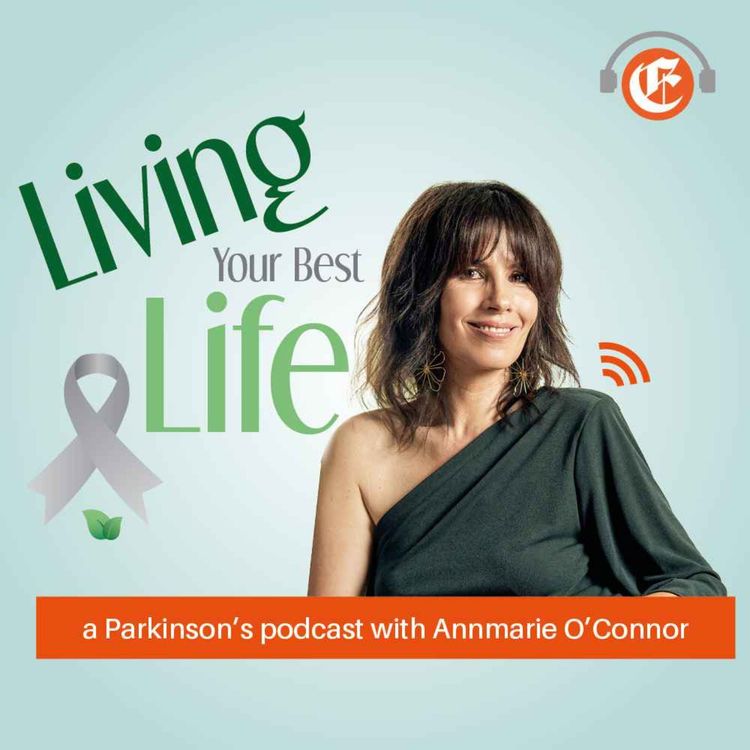
The Deirdre O'Shaughnessy Podcast
Living Your Best Life: A Parkinson's Podcast
•
Living Your Best Life: A Parkinson's Podcast - Episode 1. This podcast special series details the particular personal stories of people in the Irish Parkinson's community, the obstacles they face, the challenges they have overcome, and more importantly, the tools they use to live their best lives. In this first episode in the series, Annmarie O'Connor shares her own story of early onset Parkinson's and how routine, education and perspective helped her navigate the early days of her diagnosis.
Parkinson’s Association of Ireland www.parkinsons.ie
More episodes
View all episodes
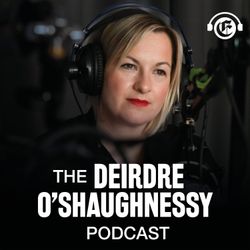
Four years of war in Ukraine and finding safety in Cork, with Liudmyla Bortok
42:37|‘On 24th of February, 5 in the morning, I woke up because my neighbours were screaming and I heard like, “It started! It started!”‘I looked out of the window and I saw explosions. I was in Kyiv at the time and I saw explosions going around... you could hear explosions, and people were rushing for the apartments to the parking spot we had, and just packing their bags, kids, all they had, pets, and just leaving immediately. ‘It took me 30 hours just to get away from Kyiv on that day.’ It’s four years today since Russia’s full-scale invasion of Ukraine. It was a day that changed the course of world history, with ripple effects on the lives of ordinary people all over Europe and further afield.The increasingly brutal and intractable war also has changed Ireland, with almost 120,000 Ukrainians seeking refuge here since the war began. About 84,000 of them mostly women and children, remain in Ireland.One of those is journalist Liudmyla Bortok, who fled to Cork with the assistance of an Irish colleague, driving across Europe with her elderly father, her teenage son and her cat.On today’s episode Liudmyla speaks candidly about the personal toll of war, the difficulty caring for vulnerable family members in a time with no instruction manual, the welcome she has received in Ireland, and how Ukraine has dropped down the news agenda over four grinding years of war. Liudmyla Bortok: Every year we pray for the war to end, and for Russia to leave us alone'Ireland stands in solidarity with Ukraine' on eve of fourth anniversary of Russian invasionFour years of Ukraine war: EU leaders battle with Hungary on supportUkraine is the biggest and most consequential of all the American betrayals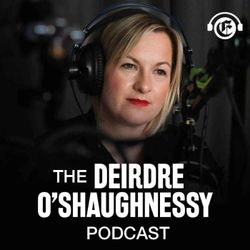
ICE and the Irish
32:33|In recent weeks, the story of Kilkenny man Seamus Culleton has come to the fore as an Irishman living and working in the US who is being detained by the US immigration police ICE. He has described the conditions in the detention centre as like a "modern-day concentration camp" but, since his story came to the public's attention, reports have emerged relating to Mr Culleton's past including his estranged daughters and cases before the courts.While he has been granted a temporary reprieve from deportation from the US, Mr Culleton said he would like Taoiseach Micheál Martin to raise his case with US President Donald Trump during his meeting in March for St Patrick’s Day.Irish Examiner political reporter Tadgh McNally joins the pod to talk about the case and the wider context ahead of the White House visit.
Red flags, with Kathleen Funchion
45:53|“I suppose from early on there was red flags that I didn't want to see, if I'm being perfectly honest,” says MEP Kathleen Funchion of her relationship with Sean Tyrell, who yesterday lost an appeal against the sentence he received for offences under Section 4 of the Harassment, Harmful Communications and Related Offences Act 2020, also known as Coco’s Law.The appeal refusal and increase in Tyrell’s sentence for sending malicious and defamatory messages about his then partner marks the end of a three and a half year legal process for the Sinn Fein MEP, whose relationship with Tyrell began in 2016 when she was a candidate and he was a volunteer in her constituency office.Tyrell’s behaviour became increasingly coercive and the couple broke up and got back together numerous times, leading her to eventually approach her local women’s refuge for support.A professional with a public and media profile in a demanding job, she struggled to reconcile the public version of herself and the private version in which her confidence was shattered and she questioned every decision.“It didn't matter what you did in this situation. It was always going to be like this, because this person just fundamentally, you know, was a controlling person.“It wasn't about how many phone calls you made to any men in your life. It was about them and their behaviour. And I think if I can get that message out there, I would love to do that,” says Funchion now.Read the full story here: Kathleen Funchion 'feels vindicated again' as ex-partner's sentence is raised for Coco's Law offenceContact Women’s Aid on womensaid.ie or by calling 1800 341900.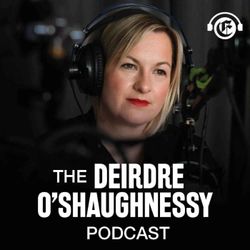
A battle for the skies, with Emer Walsh
20:51|Earlier this week, word began circulating among drone operators in Cork – architects, roofers, corporate video creators and wedding photographers – of a new rule requiring two days' notice of intention to fly a drone over large swathes of the city.The IAA had announced the new rule, which comes into effect today, quickly and with little fanfare, and as the Irish Examiner's Emer Walsh reported on Monday, the operators were not happy. What is the new rule, who’s impacted, and – perhaps most importantly – who stands to benefit?Business reporter Emer Walsh explains the issues on today’s episode of The Deirdre O’Shaughnessy Podcast.Alan Healy: There is a battle brewing over Cork's airspace that will be repeated across IrelandNew drone flight restrictions to come into force across Cork cityieExplains: What are the new drone flight restrictions in Cork and why are they coming into effect?
Moving away from US tech, with Brian Honan
38:09|Big Tech products like Whatsapp, Microsoft Office and the Apple iPhone have become essential to our daily lives, but as President Trump’s tantrums come and go, European reliance on American technology has come into focus.Trade relationships, including supplies of fuel, food and information are all now subject to the whims of an increasingly erratic US President. As state surveillance increases on US citizens, Europeans have become more aware that the technology underpinning daily life is largely controlled by US companies.Reports in relation to sanctions against UN Special Rapporteur on Gaza Francesca Albanese, who is Italian, or French ICC judge Nicolas Guillou, have been eye opening. Neither can access the most basic services including banking, credit cards and email.European alternatives to Microsoft products are now being employed by the French Government following testimony from a Microsoft France executive who acknowledged that US law would take primacy over the GDPR and other European regulations, if challenged.Today’s guest on the podcast is cybersecurity expert Brian Honan, who has been writing in the Irish Examiner about how we can move to secure our tech in the face of increasing tensions with the US.Why a gradual move away from US tech is a good ideaYanis Varoufakis: Europe should be convulsing at US sanctions against French ICC judgeTrump sanctions on International Criminal Court prosecutor halt tribunal’s work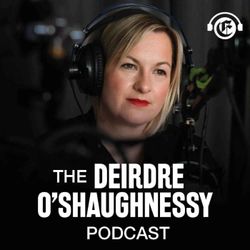
Living with the Inuit with Geraldine Osborne
33:35|With Greenland in the news, Cork doctor Geraldine Osborne’s recently published account of the year she, her husband and their three small children spent living in the Arctic is timely. Dining on seal and walrus meat in temperatures as low as –40, travelling by dog sled and sewing clothes from animal skins in the traditional Inuit way is not standard fare for a doctor on a sabbatical, but it makes a fascinating story. With insights into the Inuit way of life in Canada and Greenland, and the impact of climate change, this is a unique look at a world that has all but vanished with the melting polar ice. Dr Geraldine Osborne, author of Somewhere Cold, is the guest on today’s episode of the Deirdre O’Shaughnessy Podcast.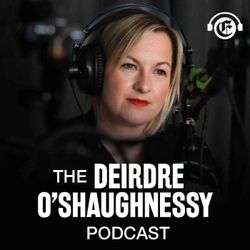
A decade of deception catches up with Catherine O'Brien - with Ann Murphy
20:22|Last month in a Waterford courtroom, the past finally caught up with Catherine O’Brien.The Buttevant woman, who’s been the subject of Irish Examiner investigations for a number of years, including the podcast series Catherine the Fake, was sentenced to 25 months in prison for fraud. But this is not the end of this story – as Ann Murphy reports, a judgment against O’Brien ordering her to repay €300,000 to the estate of a woman, now dead, who had loaned her the money on the basis of their friendship is now back in the frame. Ann Murphy is the guest on the podcast today. Fraudster Catherine O’Brien failed to repay money to estate of elderly woman she scammed of €250,000 Fraudster Catherine O’Brien sentenced for scamming elderly man out of €22k over fake horse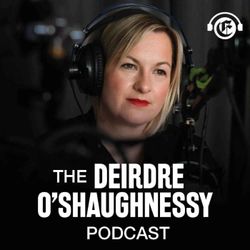
Minneapolis under siege – with Sean Murray
30:49|The scenes from Minneapolis are by now familiar to anyone with a smartphone or a television. Masked, unidentified agents of ICE, Trump’s immigration force, dragging people from cars, taking children from their parents and shooting civilians Renee Nicole Good and Alex Pretti.Irish Examiner reporter Sean Murray has just returned from the twin cities and he is speaking to Deirdre on the podcast today.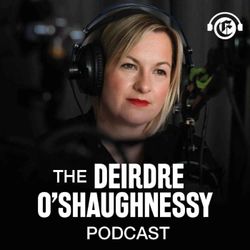
Obsession, manipulation and murder: The death of Bruna Fonseca
27:59|In 2022, 28 year old librarian Bruna Fonseca fulfilled a lifelong dream to travel to Ireland from her home in Brazil.She was attending English classes in Cork, sending money home from her work as a hospital cleaner and embarking on a new relationship with a fellow student when her life was brutally cut short by Miller Pacheco, the obsessive ex-boyfriend who refused to acknowledge their relationship was over.Last week Pacheco was convicted of her murder, despite his claims of self-defence. The evidence of his obsession, his refusal to let her get on with her life, and his actions in the early hours of 1 January 2023 proved overwhelming, with the jury reaching a unanimous verdict after just over an hour deliberating.Bruna’s family and friends paid tribute to her after the trial, with her cousin Marcela Fonseca pointing out the injustice of what was done to her.“A man decides to take someone's life. And the question that remains is: how little is our life worth? A life that was taken because a woman was not allowed to move on, to choose, to love, to live her own life."The Irish Examiner’s court reporter Liam Heylin reported on the trial. He’s the guest on today’s episode.Man faces mandatory life sentence for murder of Bruna Fonseca in Cork'Not driven by hate, but by love': family’s words after Bruna Fonseca verdict‘There is not a day I don’t want to be next to you’: Bruna Fonseca killer’s posts laid bare